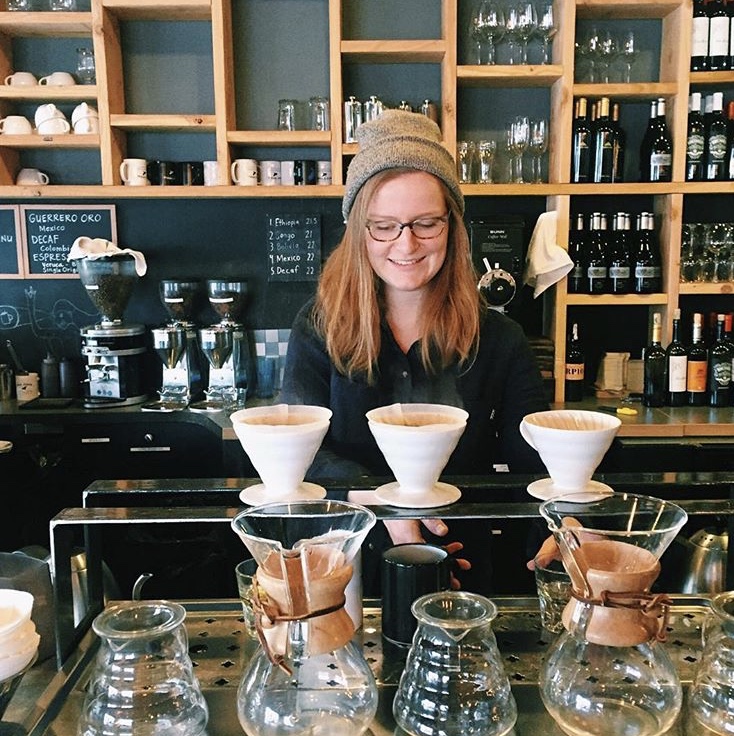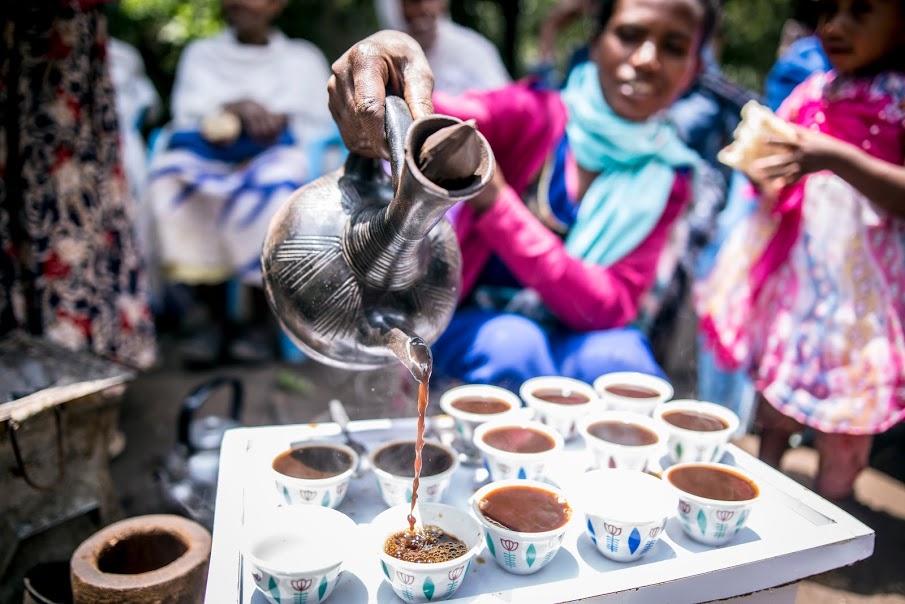Before I joined Children’s HopeChest, I worked in the coffee industry in Colorado Springs. The Colorado Springs specialty coffee industry is collaborative, focused on cultivating community, and makes some tasty coffee. I loved the work of serving coffee because it provided me with opportunities to stand at a unique cultural crossroads. That crossroads was the convergence of people and stories over cups of coffee. In those days I learned that coffee can stand as a symbol of the sacred when stewarded in a way that acknowledges its potential for impact in the kingdom of God.

We all stand at our own crossroads in which the divine meets the ordinary, and for years, I stood at the crossroads of coffee and people. During those years, I met countless people of varied backgrounds, upbringings, beliefs, and perspectives. The faces and stories of these people painted an intricately diverse picture of what being made in the image of God means, every story and face uniquely reflecting God’s nature and character. Serving coffee and learning to see it as a gateway to the sacred infused deep meaning into my work.
When I came on board at HopeChest as a Community Partnership Manager for Ethiopia, you can imagine that my prior knowledge of Ethiopia was almost entirely tied to coffee. Ethiopia, the earliest known origin of the coffee tree, boasting coffees from Gesha, Harar, Limu, Yirgacheffe, is well known as the largest coffee producer in Africa. As I settled into my work, I became a student of Ethiopia, seeking to understand more fully the intricacies and nuances of the culture in which we work in over 30 communities alongside over 4,000 children. I began to learn about Ethiopia’s government structure, ancient history, NGO operations, Amharic basics, and of course, traditional coffee ceremonies, among others.

Far before I traveled to Ethiopia for the first time in June, I had been told many stories about traditional Ethiopian coffee ceremonies. My colleague even brought back a jebena, a traditional Ethiopian clay coffee pot, that has been sitting on my desk ever since. In a traditional Ethiopian coffee ceremony, green coffee beans are roasted, ground, brewed, and served in small portions with sugar, oftentimes tena’adam, an herb native to Ethiopia, and popcorn or habesha dabo, traditional bread.
Throughout the ceremony, conversation and company with others is the heartbeat. While traditional coffee ceremonies stand as one of the most celebrated cultural experiences in Ethiopia, simple coffee shop stops for macchiatos are also essential. Both experiences lend to community building through placing a priority on slowing down for conversation and stories. In Colorado Springs and Addis Ababa alike, coffee is a mutually celebrated cultural activity cultivating community, providing opportunities for humanity to be woven together through conversation and social interaction. I believe in the possibility of the divine to meet the ordinary, and that when this happens, visibility and access to the goodness of the kingdom of God widens for all to see and take part in it. These moments of intersection become intentional acts of worship and appreciation of God’s hand in the every day. Thankfully so, in my time at HopeChest, the crossroads of coffee and people that I had come to deeply appreciate remains at the heart of the work I take part in today.

During my visit to Ethiopia in June, I stood at many new, yet familiar crossroads, as coffee ceremonies and macchiato breaks were a part of our daily routine. Ethiopia’s approach to coffee creates space to linger and connect with others, elevating conversation and social interaction as a high priority. At every corner came a coffee break, and at every coffee break came more laughter, meaningful conversations, questions, stories, the continuous work of people being woven together. New faces, names, and personalities deepened my understanding of the image of God, my Ethiopian friends becoming a part of the ever-expanding picture of the nature and character of God. In Ethiopia, the kingdom of God comes to life as lives are shared over cups of coffee.
I am thankful to say that enjoying coffee and seeing it as a gateway to the sacred continues to infuse deep meaning into my work.





